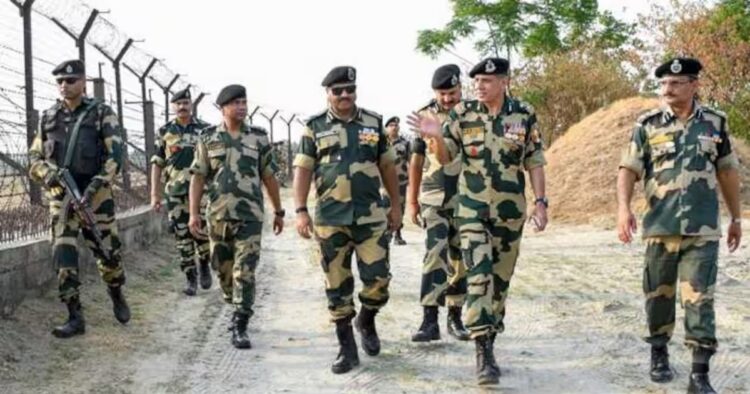The Indian government has taken a significant step by removing Nitin Agrawal, the Director General of the Border Security Force (BSF), and his deputy, Special DG (Western Command) Y.B. Khurania, from their positions. This move comes in response to a troubling increase in infiltration activities along the Jammu border, an area that falls under the BSF’s operational control.
The Jammu region, which spans 485 kilometers of the total 2,289 kilometers of the India-Pakistan border, has seen a disturbing rise in terror incidents this year. These incidents have led to the deaths of at least 22 people, including 11 security personnel and a member of the village defence guard (VDG). The affected districts include Rajouri, Poonch, Reasi, Udhampur, Kathua, and Doda, all of which are known for their dense forests and rugged terrain.
One of the most notable attacks occurred in June when a bus carrying pilgrims was targeted in Reasi, resulting in the death of nine people. In another severe incident on July 5, a military convoy was ambushed in Kathua district, killing five soldiers and injuring five more. These attacks have highlighted the growing security challenges in Jammu and Kashmir.
In response to the escalating violence, the Indian government has significantly increased the presence of security forces in the region. Two battalions of BSF troops, totaling around 2,000 personnel, have been airlifted from Odisha and are now deployed in Kashmir.
Additionally, 1,500 elite Assam Rifles troops are being sent to assist the Army, with a focus on securing the peaks and upper areas of Kashmir. Reports indicate that approximately 80 terrorists are currently operating in small groups within the Pir Panjal range.
Nitin Agrawal, who was the BSF chief, had been appointed to the position in June of the previous year and was set to retire in July 2026. His deputy, Y.B. Khurania, had been responsible for leading the BSF’s operations along the western border with Pakistan. The government has yet to announce a successor for Agrawal’s position, leaving the role temporarily vacant as the situation continues to develop.
The removal of these high-ranking officials underscores the government’s serious concern over the security situation in Jammu and Kashmir and reflects its commitment to addressing the ongoing threats in the region.

















Comments